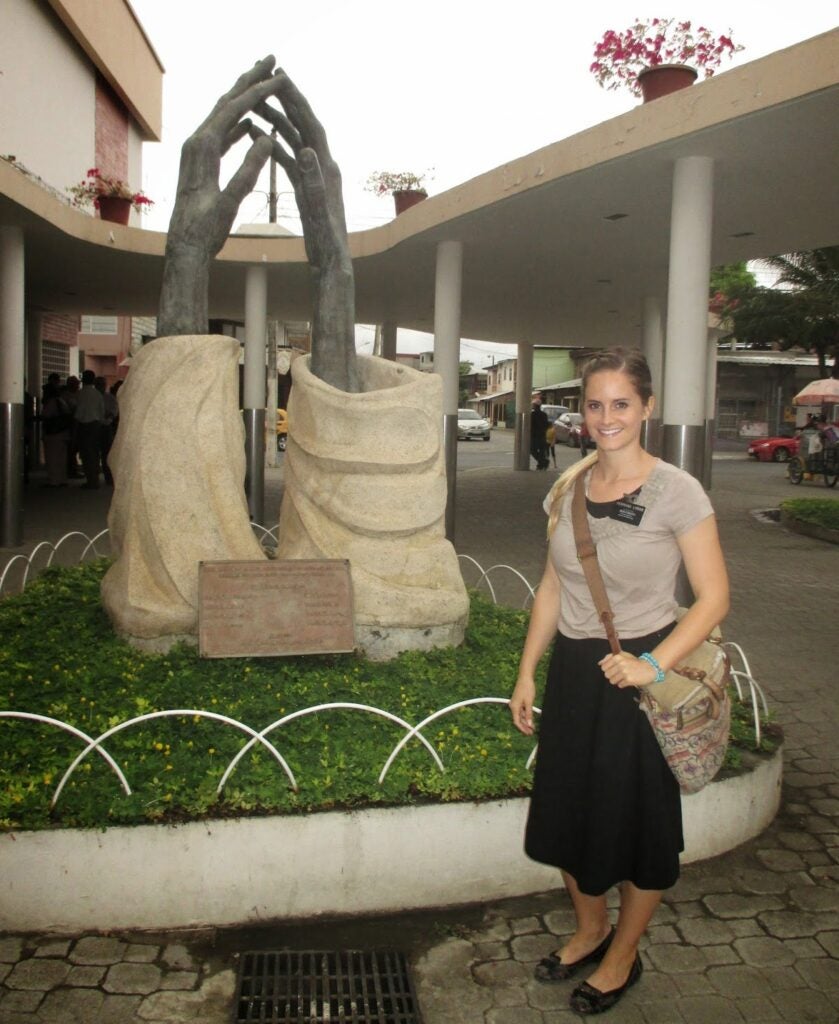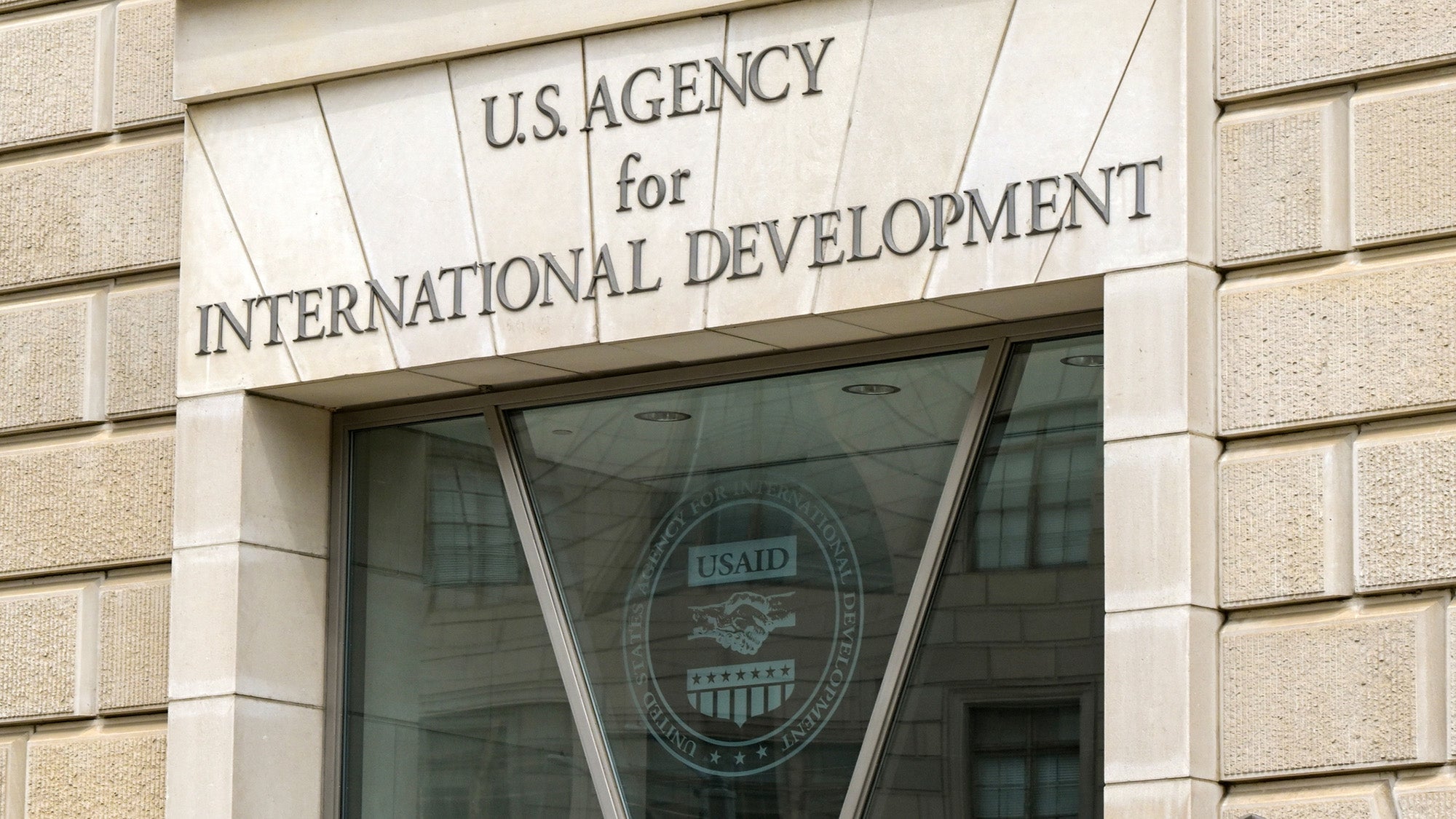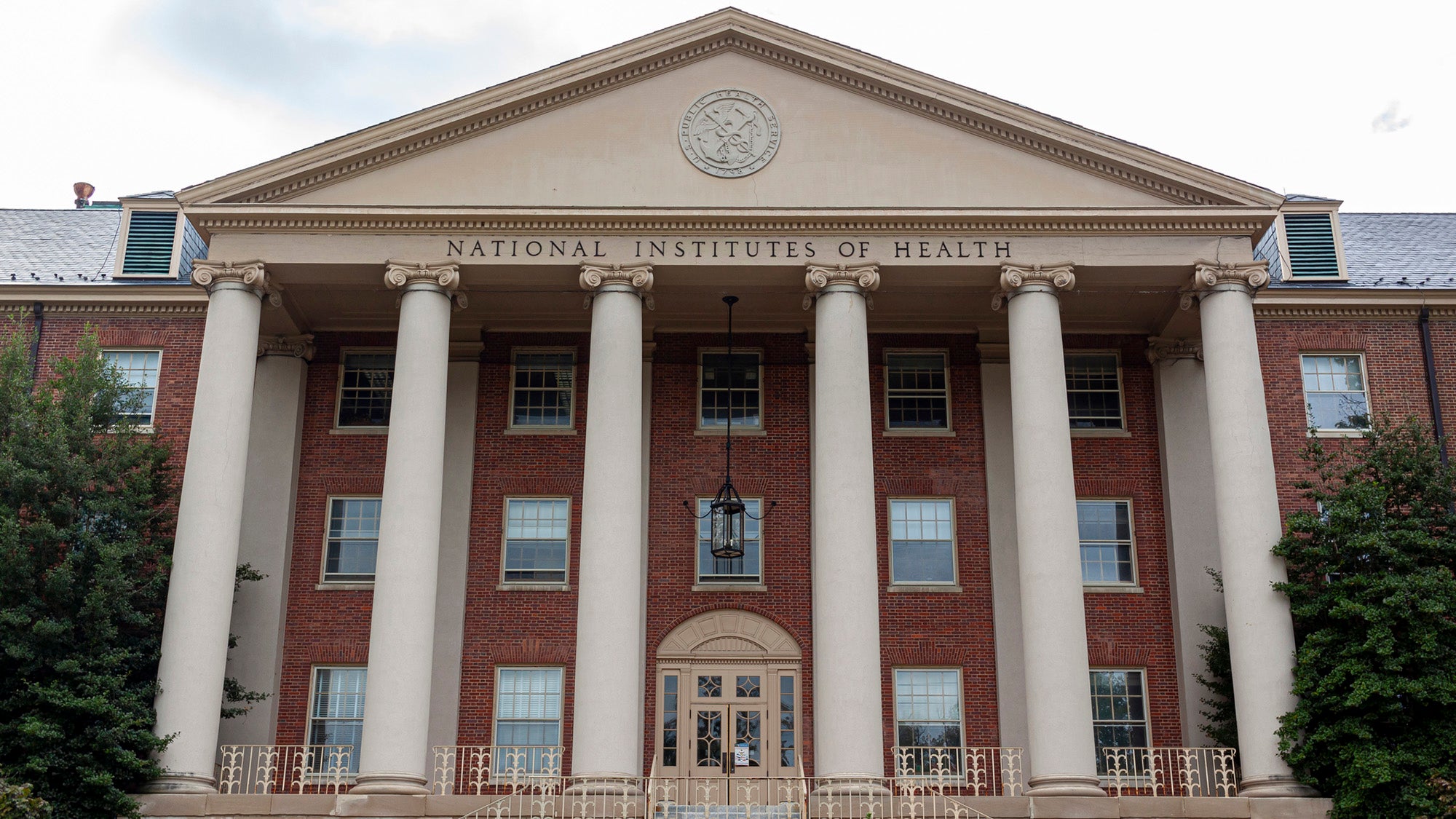Boosting the nursing ranks

Trissa Lyman, MPH ’23, is passionate about getting more people into the field
May 11, 2023 – Seventy-two-hour emergency kits. Backpacks with food. Extra clothes. Pamphlets with information about what to do if there’s an earthquake.
These were the items that Trissa Lyman, MPH ’23, pulled together in 2014 in Ecuador, where she was working as a mission nurse specialist for the Church of Jesus Christ of Latter-Day Saints at the Guayaquil West Mission. In the earthquake-prone country, it made sense to prepare ahead, the missions leaders thought—and they asked Lyman to help.
So, for about three months, that’s what the then-22-year-old Lyman did. In three provinces where roughly 200 missionaries were working, she pulled together supplies, identified buildings that would be considered safe during an earthquake, and conducted mock earthquake drills with the missionaries.
The following year, Lyman was back in the U.S. One morning in April 2016, she woke up to a slew of Facebook messages about a 7.8-magnitude earthquake in Ecuador. “My jaw dropped,” she recalled. “The earthquake hit in the Pedernales region and also caused a lot of damage and deaths in Portoviejo, where I’d served part of my mission. A lot of the people I’d served and come to know quite well were affected.” Luckily, no one she knew was killed.
But the disaster hit home, convincing Lyman of the importance of preparing ahead of time to prevent injuries and deaths—a public health mission. “I realized that something that seemed so small that I was a part of—creating these emergency preparedness plans—could really make such an impact and help people,” she said. “After that experience I thought, ‘I have to do a degree in public health.’”
This May, the Palestine, Texas native will graduate from Harvard T.H. Chan School of Public Health in the first cohort of the fully online, part-time MPH Generalist program. “The program has allowed me develop skills as a nurse practitioner and as a public health practitioner at the same time,” she said. “It’s been perfect for me.”

Service and study
Lyman called her 18 months in Ecuador transformative—and not just because of the earthquake prep work. Her duties included taking care of missionaries when they were ill, advising on treatments, and coordinating medical appointments and insurance payments. She loved the work. “Serving my mission in Ecuador lit a fire in me to become a nurse practitioner,” she said.
After finishing her 18 months of service in Ecuador in February 2015, Lyman got some more experience under her belt working as a travel nurse for a couple of years, in hospitals in Berkeley, Houston, and Boston. During this period, she continued with her nursing education, earning a bachelor of science in nursing online at the University of Texas at Arlington.
Lyman next moved to Utah, where she worked for nearly two years in the intensive care unit at the University of Utah Hospital in Salt Lake City. “I wanted that experience and skill with patients who were the sickest,” she said. At the same time, she earned a master of science in family practice nursing at Brigham Young University.
She loved the research aspect of her education at Brigham Young. She worked with nursing professor Renea Beckstrand on a 2022 study about obstacles facing nurses providing end-of-life care at critical access hospitals—those that get higher reimbursements from Medicare and Medicaid—in rural areas. The researchers had thought that some obstacles might have had to do with resources, since rural hospitals tend to have fewer than urban, but seven of the top 10 obstacles were related to family behaviors and attitudes. “The challenges facing urban and rural hospitals were the same, such as disagreements among family members about end-of-life care for their loved ones, and a lack of understanding about what life support really entails,” Lyman said.
Lyman hoped to continue her education back in Boston. Colleagues she’d met while working as a travel nurse at Massachusetts General Hospital had inspired her, piquing her interest in attending Harvard. As of early 2020, she was planning to participate in Harvard Chan School’s Global Health Delivery Intensive Program (GHDI), a non-degree program offered every summer. Then COVID hit, and the program, like all the others at the School, went virtual.
Lyman decided to hold off on her studies, instead taking another travel nurse assignment in the COVID ICU unit at a hospital in Fort Worth. “I thought it was my opportunity to help during the pandemic,” she said.
Working as an ICU nurse, although difficult, has been deeply meaningful for Lyman. “To me, one of the most rewarding aspects about nursing has been end-of-life care,” she said. “As patients are taken off life support, and the family is grieving, being with the family through the grieving process, crying with a patient’s family members—it’s such a sacred experience. It reminds you what it is to live life, what life is all about, being able to care for people during their most difficult trials in life.”
Kindred spirits
In 2021, Lyman revisited her goal of attending Harvard. She applied for Harvard Chan School’s PhD program in health policy, with a concentration on political analysis—only to learn that PhD students weren’t being accepted that year because the program’s two faculty chairs, Sara Bleich and Ben Sommers, had been recruited to work for the Biden administration. Lyman was disappointed, but she pivoted, and was accepted into the School’s MPH Generalist program.

The program didn’t disappoint. Lyman called the faculty she’s met and the colleagues in her cohort “incredible.” In particular, Stephanie Ferguson, director of the Harvard Global Nursing Leadership Program, “has been such an inspiration to me,” she said. “It was like, ‘This is the person I want to be. I love her personality. She’s so upbeat. You just want to be around her.”
In the spring of 2023, as part of the program, Lyman served as a teaching fellow for Ferguson’s week-long online course on population health management. Participants included 14 nursing leaders from 11 countries in Africa, meeting during their daytime hours. For Lyman, who was living in Provo, Utah, that meant each eight-hour class started at midnight.
Said Ferguson of Lyman, “She never missed a moment. Staying up all night, until 9 am—that was a lot of dedication. And the students thought the world of her.” She added, “She’s a go-getter.”
Growing the nursing ranks
One of the things Lyman is most passionate about is bringing more people into nursing. She might not have entered the profession if her mother, a respiratory therapist, hadn’t nudged her in that direction. As it was, Lyman began taking nursing courses at a local community college while still in high school, earning her associate’s degree by age 20. Now she thinks that introducing people to nursing in high school, the way she was, could help boost the ranks.
Toward that end, she will begin a PhD program in the fall at the University of Pennsylvania School of Nursing, where she aims to focus on policy that could help strengthen the profession. “I’m really interested in figuring out how to improve the shortage in our profession,” she said. “There will be increasing demand for nurses, with the baby boomers aging. At the same time, we’re going to have a decrease in the supply of medical providers, including nurses—and the nursing workforce is also aging.”
Citing a 2021 McKinsey survey, she added, “It’s astonishing how many nurses are just so burned out from COVID, as well as physicians. Even without COVID, it’s just a hard profession. There’s a heavy workload, and there’s a deficit of nurses and physicians. That makes working conditions really difficult.” She recalled a question in the McKinsey survey that asked nurses if they plan on leaving their profession or changing their career. “An astonishing amount said yes,” she said. “It breaks my heart, because nursing has been such a blessing in my life.”
Photos courtesy Trissa Lyman
Photo of Trissa Lyman and Stephanie Ferguson: Kent Dayton


